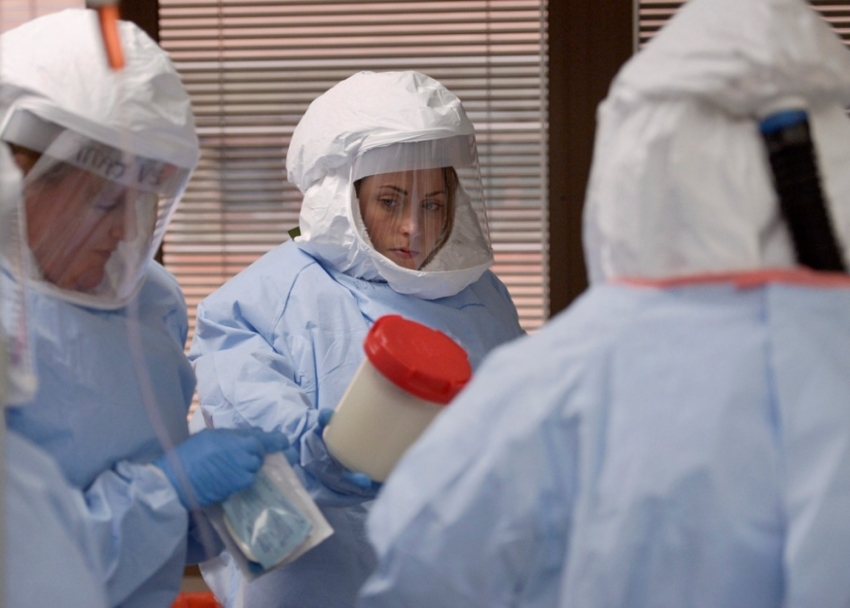Ebola Vaccine Closer to Reality After Successful Human Trials

The first ever Ebola vaccine is a step closer to becoming a reality following successful Phase 1 human trials, medical researchers have said, but warned it will still take several months before it can be used in the field.
"The unprecedented scale of the current Ebola outbreak in West Africa has intensified efforts to develop safe and effective vaccines," said Anthony Fauci, head of the National Institute of Allergy and Infectious Diseases, according to AFP. The institute is developing the vaccine alongside GlaxoSmithKline.
Hopes are that the vaccine will be able to play a role in ending the largest outbreak of Ebola in history, which has killed nearly 5,700 people in West Africa. The research could also be critically important in preventing future outbreaks.
"Based on these positive results from the first human trial of this candidate vaccine, we are continuing our accelerated plan for larger trials to determine if the vaccine is efficacious in preventing Ebola infection," Fauci added.
There is currently no cure for the deadly virus, but early detection and treatment has proven effective in saving lives.
NIH revealed that in the first phase of testing, all 20 adults who had been injected with a higher or lower dose of the vaccine developed antibodies needed to fight Ebola. The organization added that it is "in active discussions with Liberian officials and other partners about next-stage vaccine testing in West Africa" for efficacy and safety.
President Barack Obama's administration has also congratulated the vaccine researchers.
"We congratulate Drs Francis Collins and Tony Fauci and their teams at the National Institutes of Health on the first published results from Phase 1 clinical trials of a promising Ebola vaccine candidate," the Obama administration said.
Although infection cases have mostly been concentrated in Liberia, Guinea and Sierra Leone, a number of western nations have also reported cases of Ebola. Earlier this week, Italy confirmed that one of its doctors who had been treating Ebola patients in Sierra Leone came down with the disease.
While the infection rate has slowed in Liberia and Guinea, partly due to an international relief effort that has been supported by many non-profit relief groups, it continues rising in Sierra Leone.
The new infection cases have reached to 100 a day in Sierra Leone, and there have been reports of health workers dumping bodies in public, protesting against the non-payment of allowances for handling Ebola victims.
The World Health Organization has said that the total number of cases and deaths is likely to be higher than what has been reported, however, due to the difficulty of collecting comprehensive information during the crisis.



























